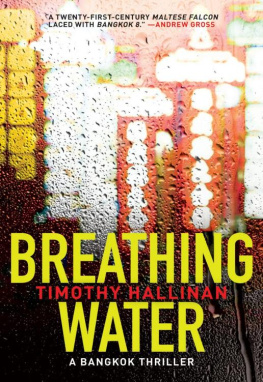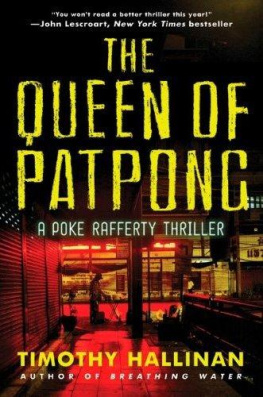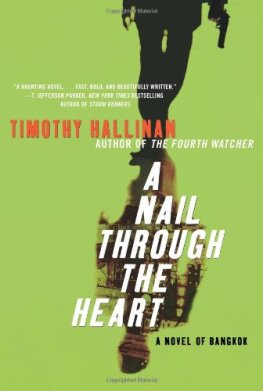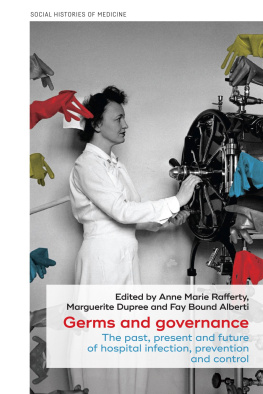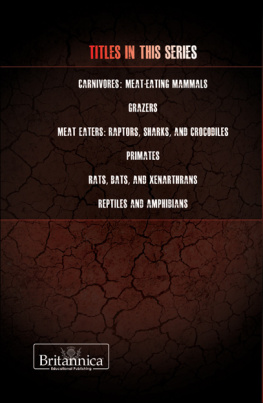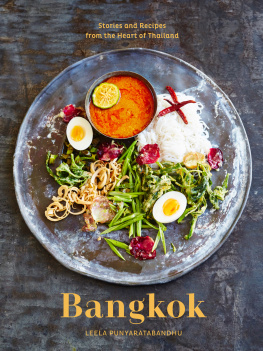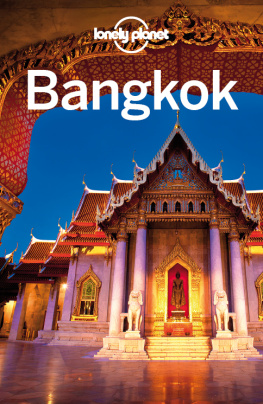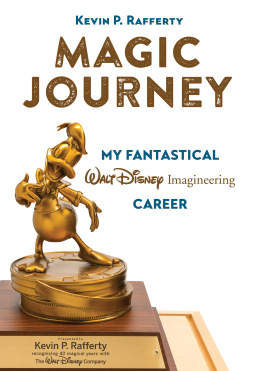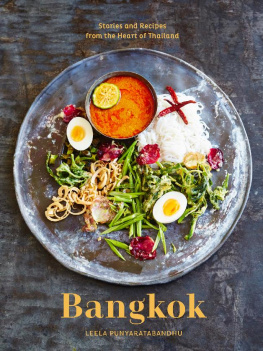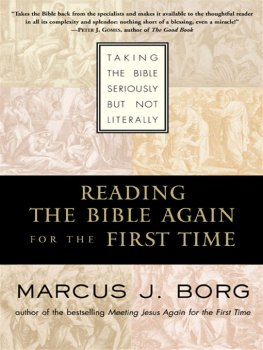TIMOTHY HALLINAN has written ten novels and a work of nonfiction. He divides his time between Los Angeles and Southeast Asia, primarily Thailand, where he has lived off and on since 1985. For more than twenty years, he ran one of Americas top television consulting firms, advising many Fortune 500 companies. He has also taught writing. Hallinan is married to Munyin Choy.
www.timothyhallinan.com
Visit www.AuthorTracker.com for exclusive information on your favorite HarperCollins author.

Australia
HarperCollins Publishers (Australia) Pty. Ltd.
25 Ryde Road (PO Box 321)
Pymble, NSW 2073, Australia
http://www.harpercollinsebooks.com.au
Canada
HarperCollins Publishers Ltd.
55 Avenue Road, Suite 2900
Toronto, ON, M5R, 3L2, Canada
http://www.harpercollinsebooks.ca
New Zealand
HarperCollinsPublishers (New Zealand) Limited
P.O. Box 1
Auckland, New Zealand
http://www.harpercollins.co.nz
United Kingdom
HarperCollins Publishers Ltd.
77-85 Fulham Palace Road
London, W6 8JB, UK
http://www.harpercollinsebooks.co.uk
United States
HarperCollins Publishers Inc.
10 East 53rd Street
New York, NY 10022
http://www.harpercollinsebooks.com
Many of the Thai names in this novel, both surnames and nicknames, are invented. While the visitor to Thailand may be overwhelmed by the sheer length of Thai surnames (five or six syllables in some cases), the names of the oldest families are quite short. Relative newcomers to the kingdom are asked to submit several potential surnames, one of which will presumably be approved, and adding a syllable or four is the easiest way to retain something approximating a familys original name without duplicating the name of an existing family. Therefore, the odds are quite high that all people who share a surname are related. This means that a writer should be careful about using a real surname, especially for an unsympathetic character, since that could be construed as libel.
I also made up some of the nicknames, aiming at simplicity and memorability, since there are so many characters.
And I should probably stress that the Bangkok in this novel (and the earlier ones) is a fictional environment, inspired by a real one. Distances have been compressed here and there, and some geographical liberties taken, primarily because it would be impossible to maintain a thrillers pace while stranded in Bangkok traffic. Those of you who find it difficult to believe in the Bangkok thats depicted here should know that millions of people feel exactly the same way about the real-life city.
But the unstable political landscape presented here is not, in the main, fictional. Its a defining fact of present-day Thailand, and no one can say how it will ultimately play out. In fairness, it should be pointed out that murder and assassination play virtually no role in Thai politics. But, of course, this is a work of fiction.
First place in the gratitude parade goes to Jonathan Whipple, who told me about a card game in which one player won the right to write anothers biography. This situation allowed me to cut by about thirty percent the amount of time it took me to get Poke into trouble. The game also gave me the alternating series of opening chapters that contrast the rich, uselessly throwing money away high above the pavement, with the people who scuffle for survival on the sidewalks.
Profuse thanks are due to my editor at Morrow, Peggy Hageman, who helped me to focus the book more precisely and to clarify some confusing story points, all the while acting as though the improvements were entirely my idea. My former editor, Marjorie Braman, suggested some key plot elements, among them the return of Superman, that made the book stronger. And my agent, Bob Mecoy, went over the manuscript with a critical eye and a mental X-Acto knife to tighten things up and reinforce some of the bearing beams.
The books wet, wonderful jacket is the work of James Iacobelli. And the manuscript inside the jacket had the benefit (as have all of Pokes adventures) of an enlightened copyedit by Maureen Sugden, who knows her Hokusai from her Hiroshige and suggested literally dozens of improvements. Still dont know about some of those commas, though.
This book, like all the others, was written mostly in coffeehouses in America and Southeast Asia. Im especially grateful to the people at Novel Cafe in Santa Monica, California, and Bee Bee Cafe in West Los Angeles, as well as to those angels of mercy who fed me and kept me caffeinated in Phnom Penh, at Corner 33, Black Canyon Coffee, and Freebird. Coffee World in Bangkok also gets some of the blame.
As always, the writing of this novel had a soundtrack, courtesy of an overstuffed iPod. Most frequently played were Bob Dylan, Rufus Wainwright, Rilo Kiley, Vienna Teng, Shawn Colvin, Conor Oberst, John Prine, Vampire Weekend, Angelique Kidjo, Emmylou Harris (always and forever), Mary Gauthier, Elvis Costello, Rihanna, Delbert McClinton, Taylor Swift, Patti Griffin, Calexico, Over the Rhine, Ryan Adams & the Cardinals, the perpetually heartbreaking Townes Van Zandt, TV on the Radio, The Hold Steady, Tegan and Sara, and Kyung-Wha Chung. And about four hundred others.
My deepest and most heartfelt thanks go to the person Im blessed to share my life with, my wife, Munyin Choy-Hallinan. As this books first reader, she helped me make parts of it better and strengthen (or at least plaster over) its weaknesses. Without her, it would never have been finished.
T he man behind the desk is a dim shape framed in blinding light, a god emerging from the brilliance of infinity. The god says, Why not the bars? Youre pretty enough.
The girl has worked a finger into the ragged hole in the left knee of her jeans. The knee got scraped when the two men grabbed her, and she avoids the raw flesh. She raises a hand to shade her eyes so she can look at him, but the light is too bright. I cant. I tried for two nights. I cant do it.
Youll get used to it. The god puts a foot on the desk. The foot is shielded from the light by the bulk of his body, and she can see that it is shod in a very thin, very pale loafer. The sole is so shiny that the shoe might never have been worn before. The shoe probably cost more than the girls house.
The girl says, I dont want to get used to it. She shifts a few inches right on the couch, trying to avoid the light.
Its a lot more money. Money you could send home.
Home is gone, the girl says.
Thats a trifle, and he waves it away. Even better. You could buy clothes, jewelry, a nice phone. I could put you into a bar tonight.
The girl just looks down and works her finger around inside the hole. The skin around the scraped knee is farm-dark, as dark as the skin on her hand.
Okay, the man says. Up to you. He lights a cigarette, the flame briefly revealing a hard face with small, thick-lidded eyes, broad nostrils, pitted skin, oiled hair. Not a god, then, unless very well disguised. He waves the smoke away, toward her. The smoke catches the glare to form a pale nimbus like the little clouds at which farmers aim prayers in the thin-dirt northeast, where the girl comes from. But this isnt easy either, the man says.
She pulls her head back slightly from the smoke. I dont care.

